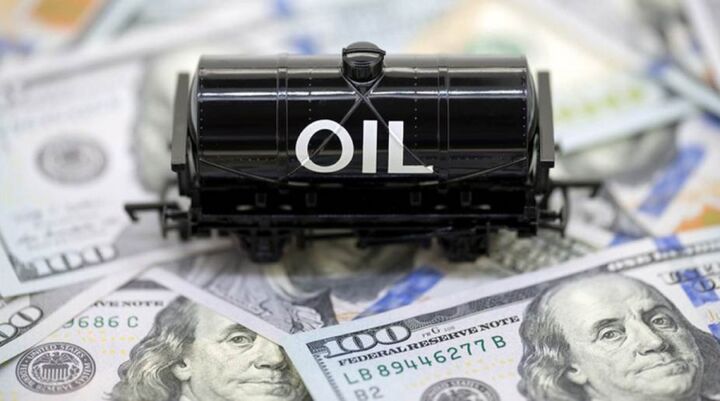Nigeria’s oil sector is facing renewed concerns as fresh figures reveal that crude oil earnings declined by a staggering ₦3.18 trillion, even as production volumes recorded a notable surge. This paradox, industry experts say, underscores the structural weaknesses in Nigeria’s revenue model, which relies heavily on oil exports but remains vulnerable to global price volatility and fiscal leakages.
According to the latest petroleum market data, crude oil output rose steadily in recent months, driven by improved security in oil-producing regions and sustained efforts by the Nigerian Upstream Petroleum Regulatory Commission (NUPRC) to tackle theft and pipeline vandalism. Production levels, which had previously dipped to crisis points below one million barrels per day, climbed closer to 1.5 million barrels daily, marking one of the country’s strongest performances in recent years.

Despite this progress, however, Nigeria’s oil earnings suffered a sharp contraction due to falling global crude prices, coupled with lower demand from traditional buyers such as the United States and parts of Europe. In fact, reports indicate that U.S. crude imports from Nigeria dropped by as much as 40% this year, reducing the country’s access to a critical revenue stream.
Analysts point to the mismatch between higher output and lower revenues as a warning sign. While production increases should typically boost national earnings, the decline in prices—driven partly by oversupply in the international market and energy transition dynamics—has erased these potential gains. For a country like Nigeria, where oil accounts for more than 70% of government revenues and 90% of foreign exchange inflows, this earnings slump has serious implications for fiscal stability.
The Central Bank of Nigeria (CBN) has been closely monitoring the development, especially as dwindling forex inflows weigh on the naira. The government’s ability to fund capital projects, stabilize the currency, and meet debt obligations is being threatened by the decline in oil receipts. Already, experts have warned that the ₦3.18 trillion shortfall will widen Nigeria’s budget deficit, potentially forcing the government to borrow more or cut spending on key infrastructure and social programs.
Stakeholders within the oil industry have also expressed concern that Nigeria is not maximizing the benefits of its recent output recovery. While production has risen, significant volumes of crude are still lost to technical inefficiencies, underinvestment in refineries, and delays in fully operationalizing the Dangote Refinery. This means that Nigeria continues to export raw crude at relatively lower margins while importing refined products at high costs—an imbalance that erodes net earnings.
Furthermore, the global shift towards cleaner energy is accelerating pressure on oil-dependent economies like Nigeria. With many advanced economies gradually reducing fossil fuel imports in favor of renewables and gas alternatives, Nigeria’s heavy reliance on crude exports leaves it increasingly vulnerable. Analysts suggest that without urgent diversification of revenue sources and investment in value-added refining, Nigeria risks continued revenue shocks despite producing more oil.
On the brighter side, officials at the Ministry of Petroleum Resources have reassured that ongoing reforms, particularly the implementation of the Petroleum Industry Act (PIA), will stabilize the sector. They argue that by improving transparency, incentivizing investment, and strengthening regulatory oversight, Nigeria can attract more international capital and boost efficiency in oil production. Additionally, the government is banking on local refining capacity—especially with the Dangote Refinery and rehabilitation of state-owned refineries—to reduce dependence on imports and save billions of dollars in foreign exchange.
The Nigerian National Petroleum Company Limited (NNPC Ltd) has also vowed to intensify efforts against oil theft and pipeline sabotage, which had previously accounted for major losses. According to recent data, crude theft has already dropped to its lowest level since 2009, falling to just 9,600 barrels per day, a development that partially explains the surge in reported output.
Still, the revenue decline highlights the urgency of long-discussed reforms. Beyond oil, economists are calling for stronger investments in agriculture, manufacturing, solid minerals, and digital services to create alternative streams of foreign exchange. They argue that Nigeria cannot continue to peg its fiscal destiny on oil prices, which it has no control over.
In the meantime, Nigerians are bracing for the ripple effects of reduced oil earnings. With government revenues shrinking, there are fears of delayed salary payments, reduced capital spending, and increased borrowing. For ordinary citizens already grappling with high inflation and unemployment, any further fiscal tightening could deepen economic hardship.
In conclusion, Nigeria’s ₦3.18 trillion crude earnings loss despite increased production reveals a troubling paradox: higher output does not always guarantee higher revenues. The development is a stark reminder of the fragility of oil-dependent economies in a rapidly changing global energy landscape. Unless Nigeria accelerates reforms and diversifies its economic base, the nation may continue to face revenue shocks that undermine growth and development, no matter how much oil it produces.
Support InfoStride News' Credible Journalism: Only credible journalism can guarantee a fair, accountable and transparent society, including democracy and government. It involves a lot of efforts and money. We need your support. Click here to Donate
